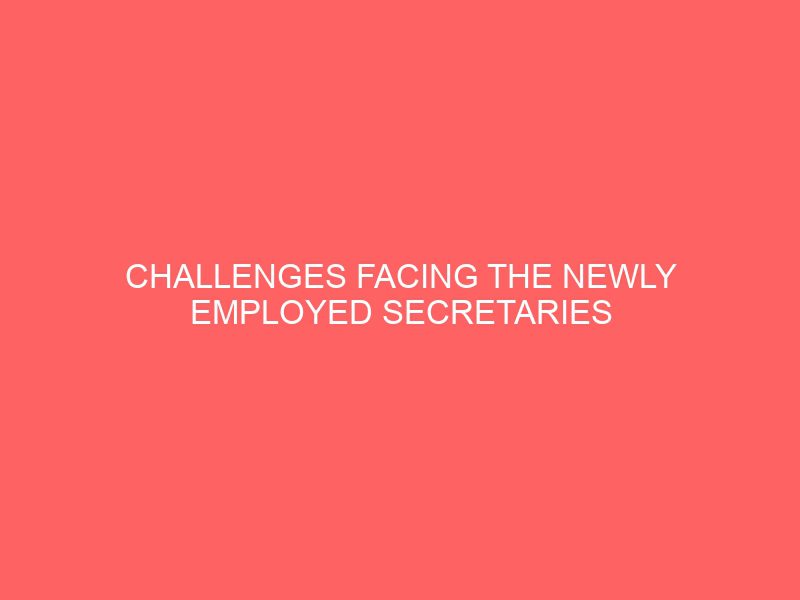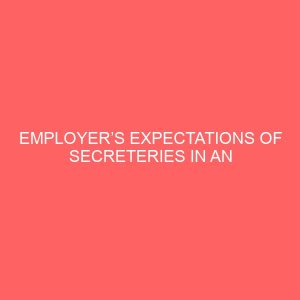Description
CHALLENGES FACING THE NEWLY EMPLOYED SECRETARIES IN SELECTED MINISTRIES
ABSTRACT
This research study focuses on an investigation into the challenges facing the newly employed secretaries in selected ministries in Imo state. Specifically, five ministries located in Owerri, Imo state were investigated, ministers of lands, and survey, ministries of Agriculture and Natural Resources, works and Housing, education and finance. The study adopted simple random sampling techniques taking into consideration the five ministries and the “secretaries” experience with much emphasis on newly ones. Instruments for data collection were the questionnaire. In this study, three research question were formulated for the purpose which includes the role expected of the newly employed secretaries in selected ministries in Imo state, the office skills expected of newly employed secretaries in the ministries, and various challenges facing the newly employed secretaries in the ministers. The result of the finding reveals that the general agreements on the first research question are endorsed as strongly agreed. Also the calculated mean responses for the items under research question two reveals that the respondents strongly agree to all the skills identified as the required office skills expected of the newly employed secretaries in selected ministries in Imo State. In research question three, four out of the seven challenges indicated were strongly agree to as the challenges facing the newly employed secretaries, while the remaining three were strongly disagreed upon as challenges facing newly employed secretaries. It was therefore recommended that the executives and indeed all staff should extend their hand of fellowship to the newly employed secretaries they should either be abused or misused. The secretaries on their own part should work with caution.








Reviews
There are no reviews yet.